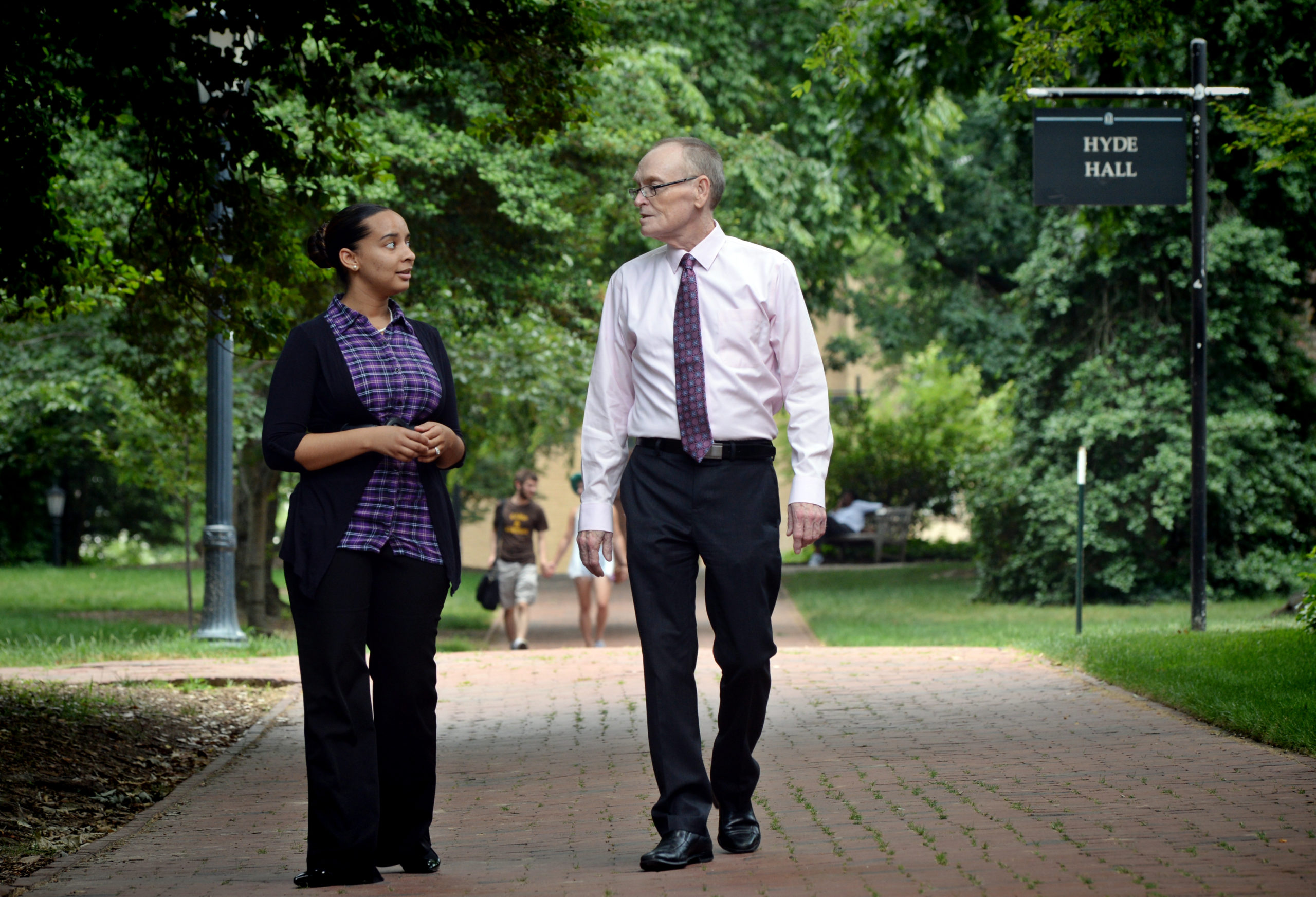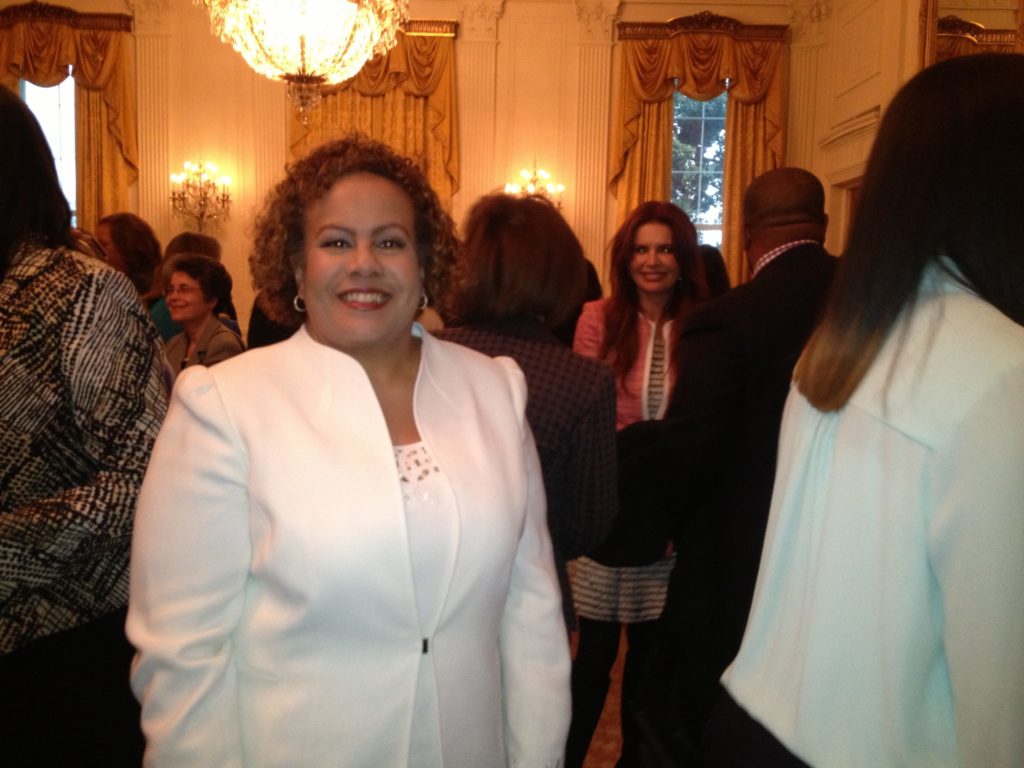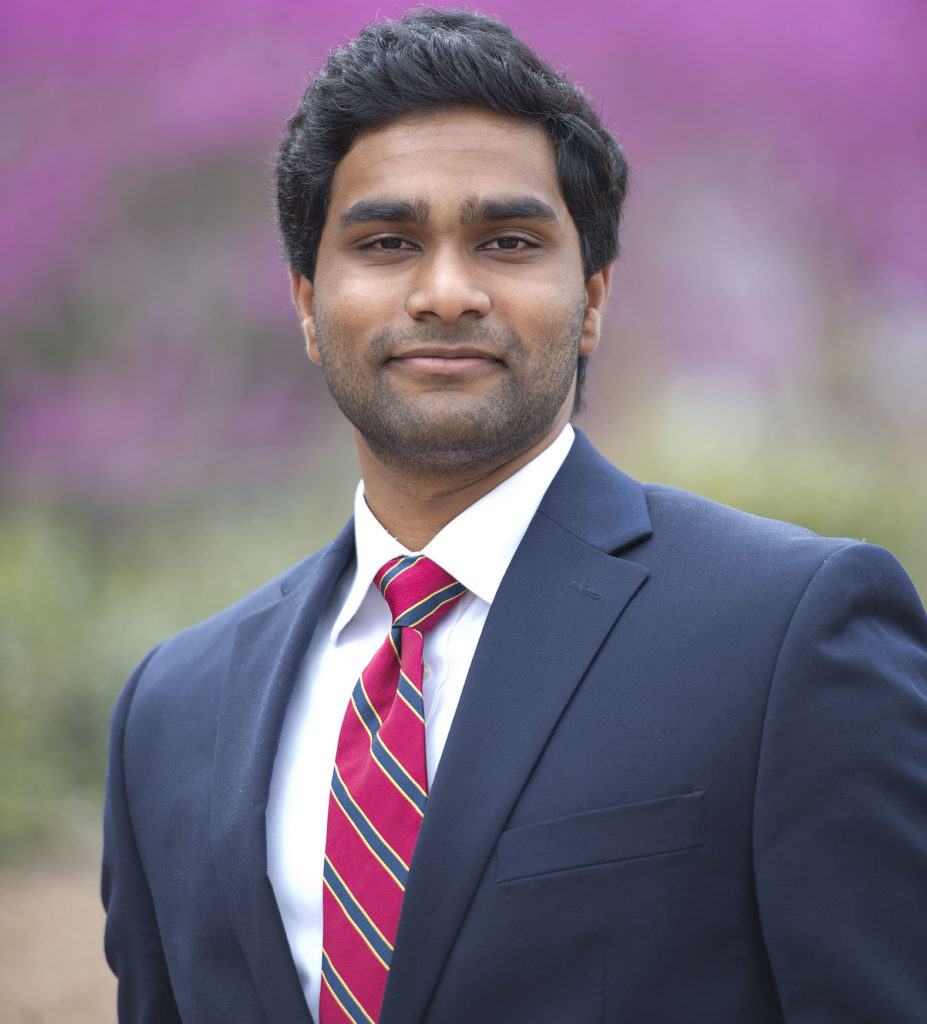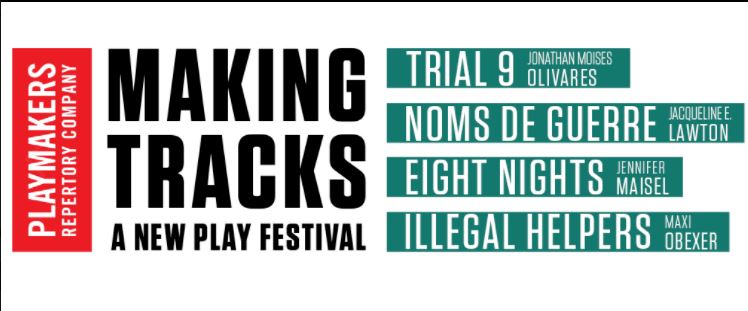
After 47 years at Carolina, longtime professor Fred Clark is stepping down from teaching. But, he’s not stepping away from the students — it’s something he can’t even imagine.
While Clark, professor of Portuguese in the College of Arts and Sciences, is ready to leave the classroom, he’ll remain a fixture on campus, devoted as ever to the Carolina Covenant Scholars Program where he has served as academic coordinator since the program began a decade ago.
“The word covenant means promise,” said Clark. “That’s literally what we’re doing with these students: we promise that we’ll get them through this.”
It’s a promise that, for Clark, is unbreakable.
As the Covenant celebrates its 10th anniversary this year, it remains one of the most meaningful experiences of Clark’s time at Carolina. As a shining example of the power personal connections have for students, the Covenant also illustrates how faculty and staff can make a real difference just by paying closer attention, Clark said.
In 2003, Clark was in his fourth decade of teaching and administration at UNC when Shirley Ort, longtime director of the Office of Scholarships and Student Aid, approached him about the Covenant, a new financial aid program that would allow eligible low-income students to graduate debt free.
“Shirley had this idea that it’s hard enough to get in to Carolina. A student who is accepted should have all the help they need,” he said. “It’s a program that’s shown what a special place Carolina is. It was immediately and enthusiastically supported all over campus, and it has been since.”
The program was envisioned to go beyond financial aid. It would include assistance of all kinds, both campus volunteers and faculty mentors, and a constant re-evaluation of what students need to succeed. Ort tapped Clark as academic coordinator to help scholars find their best paths, develop their interests and discover everything Carolina has to offer.
Clark grew up in Gainesville, Florida, the sixth of seven children and the first in the family to attend college. Academia stuck with him from the start, and by the time he was 23, he had a Ph.D. and a new job on the faculty at Carolina.
“I’ve spent my whole life here,” he said, “and that’s because there’s something special about this place: a sense of family and a sense of community. And, then there are the students – they are why I don’t ever see myself really retiring.”
During his time on Carolina’s faculty, Clark held administrative positions in academic advising and the General College and became associate dean of academic services. In the classroom, he loved watching his students become engrossed with languages and engaging with the literature and cultures of far-away places.
Outside the classroom, he was learning how personal contact with a student often made all the difference. By asking students about the academic side of their lives, Clark took notice of how they would open up about other things. Their culture and their social, professional and academic situations were intertwined – when you were dealing with one issue, you were really dealing with all of them.
“People always say kids need to leave the nest. But for the first year or so, they still need support,” he said. “You can’t just let them fly out on their own all the time.”
Knowing how hard it can be for students to ask for that help, Clark has made a point of going to his scholars directly to see what they need to be able to excel on campus.
Precious Barnes was one of those students.
Barnes came to Carolina in 2005, part of the second cohort of Covenant Scholars. At her high school in Charlotte she worked hard, but school also came easy to her. She thought she would come to Carolina and study to become a doctor. She thought that was the kind of job smart kids were supposed to go after.
Then came chemistry. And Fred Clark.
“I wasn’t doing well at all, and I couldn’t figure out why. I’d never had trouble in classes before,” Barnes said. “It was just a really tough transition. Fred was the biggest influence in helping me see my way through.”
Clark asked Barnes to take a career inventory, in which she showed a strong aptitude for helping others. It was what she loved most, and one of the reasons she thought medicine was the right career. But the test helped unearth a deeper desire for a career in social services, and a change to majoring in sociology.
“He said, ‘Precious, what is your true passion, what do you want to do?’ It wasn’t about what I thought looked or sounded good – he encouraged me to go for what I loved,” she said.
Barnes’ grades steadied and school became fun again. She graduated from Carolina in 2009, and after working as an adviser in the Carolina College Advising Corp joined the Office of Scholarships and Student Aid as a counselor, a role that allows her to impart the kind of one-on-one attention that she learned from Clark. This May, she earned a master’s degree in human services from Liberty University while working full time.
“If he wasn’t there encouraging me, I’d probably still be stuck trying to make it in chemistry,” she said. “Fred isn’t going to let any student slip through the cracks. He will go to the end for them.”
It’s an office philosophy, Clark said, that doesn’t begin and end with him. Clark is quick to credit Michael Highland, the Covenant’s associate academic coordinator and part of the office since he started working there as an undergraduate in 2007, for helping the program to grow in such a personal way and creating many of the enrichment opportunities that the scholars enjoy. (Read more about Highland.)
“He’s definitely the face of this program for the scholars, and he’s given them his all,” said Clark.
He and Highland give all the scholars their mobile phone numbers, encourage them to take advantage of the Covenant’s relationship with the arts on campus, the free tickets to concerts and plays, and the services available at the learning and writing centers.
“It takes a while for it to sink in how many things are going on here on campus, and that it’s all here for them, that they do have access to this kind of enrichment,” he said. “Last year, a student called me from intermission at the symphony just to say that she was blown away by it. She’d never been to a symphony, and she couldn’t wait to tell me how fantastic it was.”
Clark said what makes the Carolina Covenant Scholars Program remarkable, initially, is the freedom from a tremendous financial worry. But even when that burden is lifted, a need for guidance often remains – for virtually all students.
“Students who get into Carolina are the cream of the crop, and the cream of the crop are not used to asking for help, when that is, in fact, the first thing they need to do,” he said. “We have all these wonderful faculty and administrators who are available for them, and it’s the students themselves who need to learn to take the initiative, be flexible and ask for what they need.
“And, what they need, we are here to provide.”
To learn more about the program and meet some of the scholars, visit carolinacovenant.unc.edu.
By Courtney Mitchell, University Gazette



